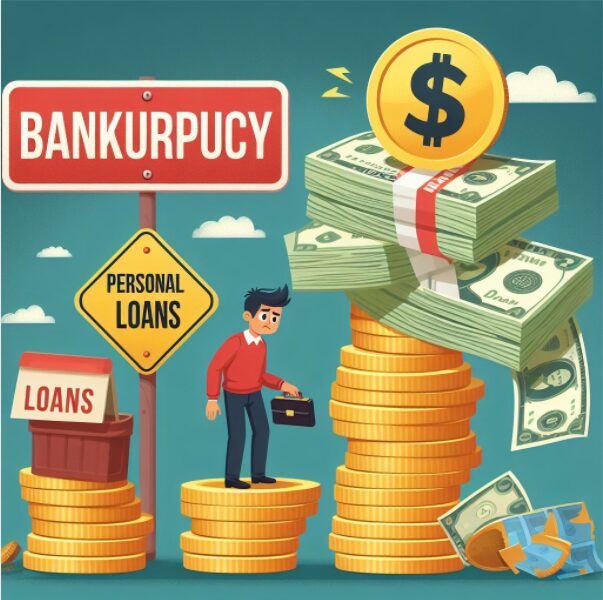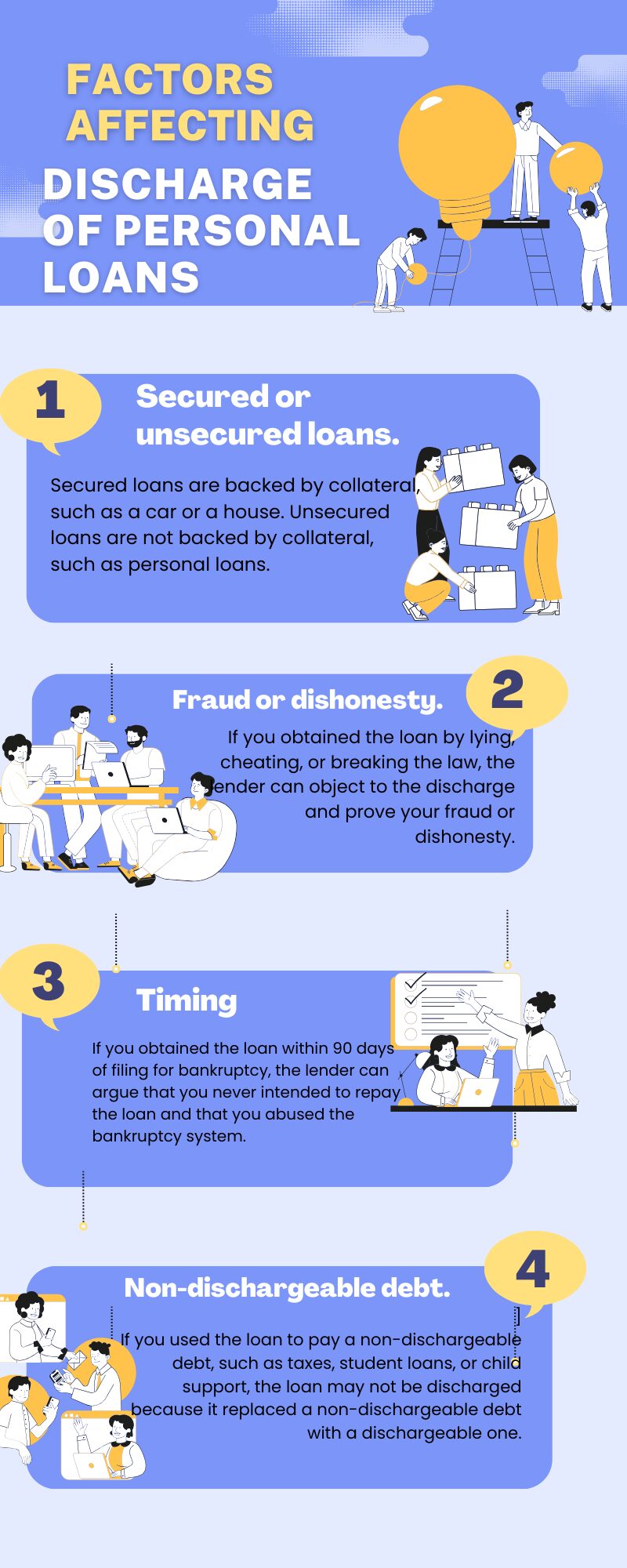What happens if you cannot repay your loans and other debts? Can you file bankruptcy on personal loans and get rid of them?
Personal loans are a common form of debt that many people use to finance various expenses, such as home improvements, medical bills, education, or emergencies.

Can You File Bankruptcy on Personal Loans?
The answer depends on the type of bankruptcy you choose and the nature of your loans. There are two main types of bankruptcy:
Types of Bankruptcy
There are two main types of bankruptcy for individuals: Chapter 7 and Chapter 13.
Chapter 7: Bankruptcy
Chapter 7 bankruptcy is a liquidation bankruptcy. You sell your non-exempt assets to pay your creditors.
Most of your unsecured debts, such as personal loans, are discharged. But some debts, such as student loans, taxes, and child support, are not.
Chapter 13: Bankruptcy
Chapter 13 bankruptcy is a reorganization bankruptcy. You create a repayment plan to pay some or all of your debts over three to five years.
You keep your assets but pay your disposable income to your creditors. Your loans may or may not be discharged, depending on your situation.
Factors Affecting Discharge of Personal Loans
Some factors can affect whether your loans can be discharged in bankruptcy. They are:

Secured or unsecured loans.
Secured loans are backed by collateral, such as a car or a house. Unsecured loans are not backed by collateral, such as personal loans.
Secured loans are harder to discharge than unsecured loans because the lender has a lien on the collateral.
You have to either keep paying, redeem, or surrender the collateral to discharge the debt.
Fraud or dishonesty.
If you obtained the loan by lying, cheating, or breaking the law, the lender can object to the discharge and prove your fraud or dishonesty.
Timing.
If you obtained the loan within 90 days of filing for bankruptcy, the lender can argue that you never intended to repay the loan and that you abused the bankruptcy system.
Non-dischargeable debt.
If you use the loan to pay a non-dischargeable debt, such as taxes, student loans, or child support, the loan may not be discharged because it replaces a non-dischargeable debt with a dischargeable one.
Filing for bankruptcy on personal loans can be a difficult and stressful decision. But it may also be a way to get a fresh start and regain control of your finances. If you need legal assistance, please contact a licensed bankruptcy attorney in your area. Thank you for your attention!